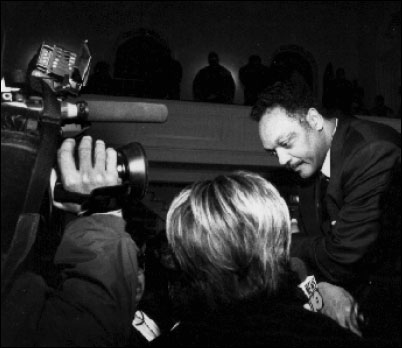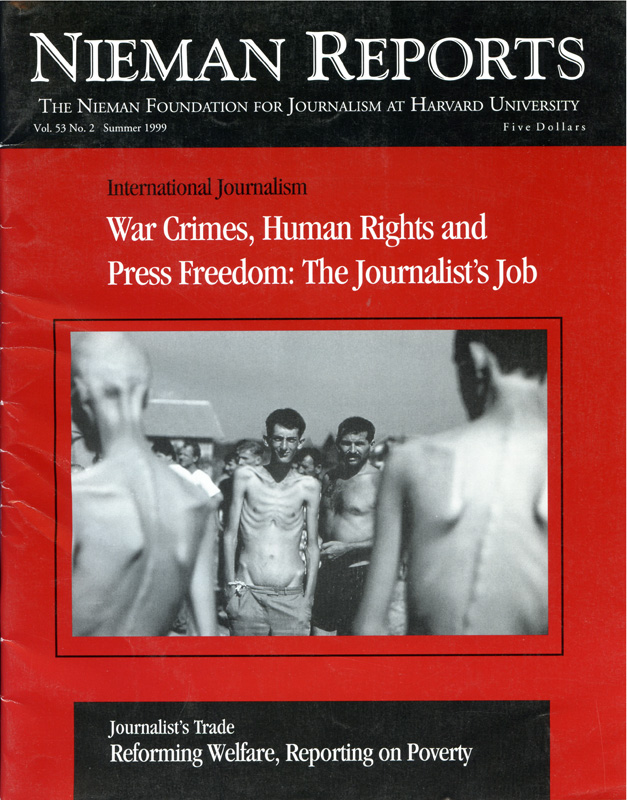
Rev. Jesse Jackson at Union College.
RELATED ARTICLE
"The Strange Questions Journalists Ask"
- Richard L. FoxI am a political animal, so the presence of Jesse Jackson on my campus held out the promise of a rare stimulating evening of political give and take. I find that political passion is often in short supply on college campuses these days. Whether liberal or conservative, Democrat or Republican, most of my peers have turned away from political involvement. So I was quite amazed and delighted when Jackson provoked passive students of all political persuasions with his message on social justice. By citing gross social and economic inequalities that reflect the consequences of various governmental policies, Jackson effectively touched a student body whose own economic circumstances make them feel far removed from the repercussions of social injustice.
As I looked around the auditorium, seeing his words being absorbed by so many of my fellow students, my thoughts turned to the possibility for action and the necessity for social unification. It was an exciting moment, but one that would soon be all but erased from memory by what happened next. When the speech ended and questioning by the media began, these thoughts and passions were abruptly restrained. Members of the media one by one belittled Jackson’s message by not engaging him in questions concerning substantive policy issues and in doing so stifled my belief in the possibilities of the political process.
In only 10 minutes of asking questions, the journalists who were there not only undermined an important policy discussion that the students might have had with their speaker about social justice but trivialized the message of a dedicated advocate for change.
Disgusted by the media’s performance, I decided to rise and ask Jackson a question that emphasized the sensationalistic role that the media plays. The audience’s reaction displayed to me that I was not the only one in attendance who witnessed a prime example of how the media’s tunnel vision does a great disservice to our national dialogue.
Adam-Paul Smolak is a junior studying political science at Union College in Schenectady, New York.



